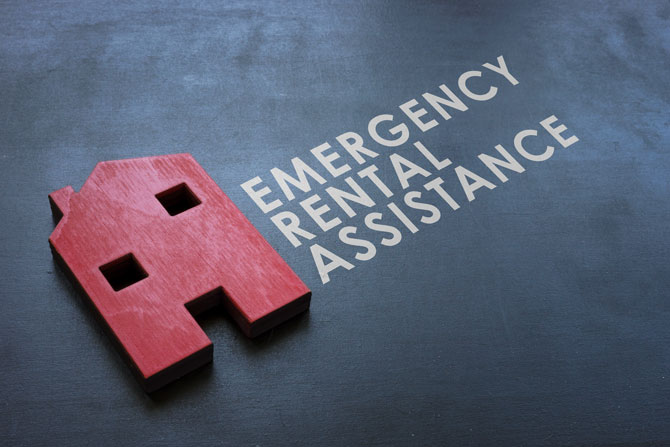The COVID-19 pandemic has strained many parts of the global economy over the last two years. Among those most affected are individuals who lost jobs (temporarily or permanently) and had difficulty paying rent on time, causing a ripple effect throughout the rental industry.
Landlords have, in turn, struggled to meet mortgage payments, developers have struggled to satisfy investment requirements with respect to affordable housing projects, and market-rate developments may struggle to attract and retain tenants who can meet the market rental rates. Add to this the moratorium on evictions issued by the Centers for Disease Control for a period of time and similar moratoriums enacted by other jurisdictions, and there grew a significant gap of rents owed by tenants that remained uncollected by landlords.
On Dec. 27, 2020, Congress passed the Consolidated Appropriations Act, 2021, Public Law 116-260, Section 501(a). This Act provided $25 billion for the U.S. Treasury to establish the Emergency Rental Assistance program to make payments directly to States and local governments with more than 200,000 residents and provide financial assistance to eligible households unable to pay rent and utilities because of the COVID-19 pandemic. Then, March 11, 2021, Congress passed the American Rescue Plan Act of 2021, Public Law 117-2, Section 3201, which provided an additional $21.55 billion for the Treasury to make additional funds available for the program.
In an effort to combat unnecessary evictions and still permit landlords to receive the rent they are entitled to, eligible states and local jurisdictions have established their own jurisdictional programs to provide these funds, available not only to tenants applying for assistance directly but in many cases, landlords are eligible to apply on behalf of the tenants to seek eligible benefits.
These benefits are paid directly to the landlord whenever possible to satisfy eligible rental expenses. To obtain the benefits, tenants and landlords cooperate in the process, including submitting an application (paper or electronic is usually available). Next, they certify the legitimacy and accuracy of the underlying application and provide supporting information required by the jurisdictional programs, such as leases, proof of property ownership, personal identification, banking information, etc. Benefits can include eligible rental arrears, utility expenses, certain other miscellaneous expenses and fees, and a limited amount of forward rent if tenants remain unable to meet their rental expenses.
The program does have certain limitations, which include, but are not limited to, limits on total assistance paid that cannot exceed 12 months of arrears or 15 months in total (including any eligible forward rent), benefits cannot be duplicated with funds from the program or other eligible programs, and landlords must agree to halt and not bring eviction proceedings for failure to pay rent against tenants for such period of time as assistance has been paid.
“Owners of rental properties, property managers, and tenants should all be aware of the benefits available to ensure that unnecessary collection activities and expenses, as well as eviction proceedings, are avoided.”
Owners of rental properties, property managers, and tenants should all be aware of the benefits available to ensure that unnecessary collection activities and expenses, as well as eviction proceedings, are avoided. States and eligible local governments may also be working with sub-grantees such as local nonprofits to try and more directly make benefits available to individuals who may not otherwise be aware of the jurisdictional programs or how to access the benefits. The U.S. Treasury website links to applicable state programs so tenants and landlords can investigate the appropriate programs and seek benefit assistance where appropriate.
Matthew Wine is an attorney at Spencer Fane LLP in the firm’s Overland Park, Kansas, office. He focuses on commercial and residential real estate development, tax credit incentive financing related to commercial and affordable housing developments, state and federal regulatory counseling, financial services, and general construction and development matters. Matthew can be reached at mwine@spencerfane.com.









